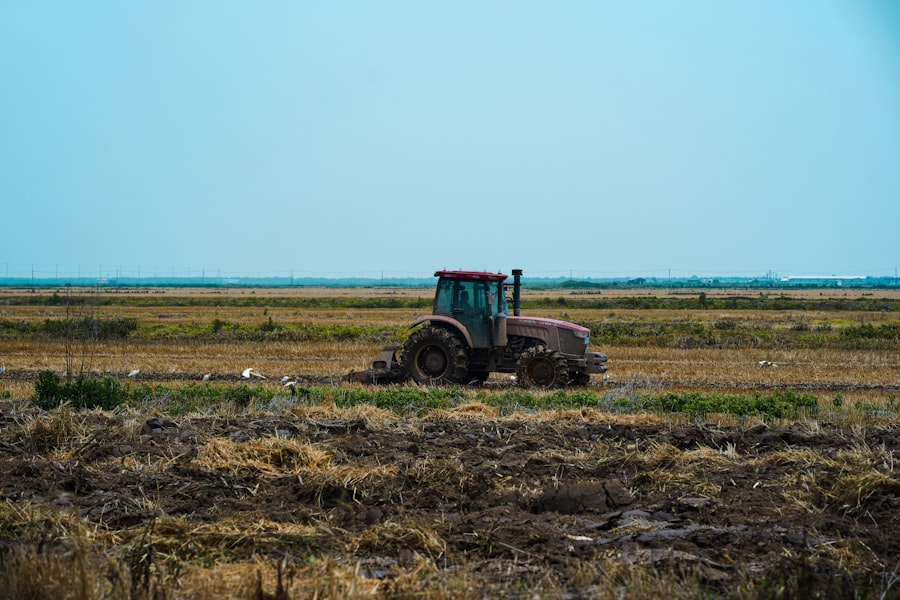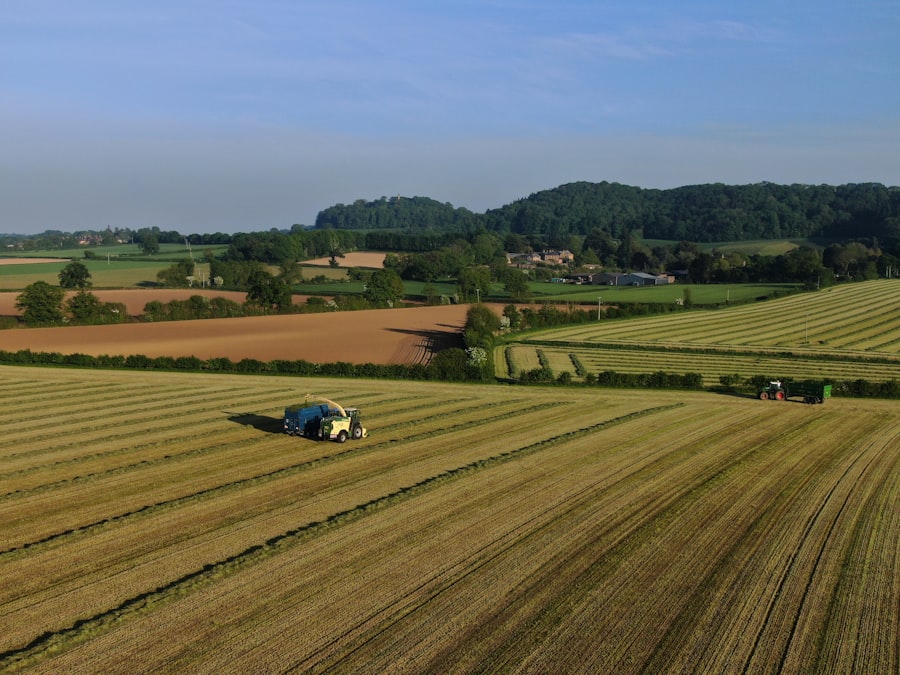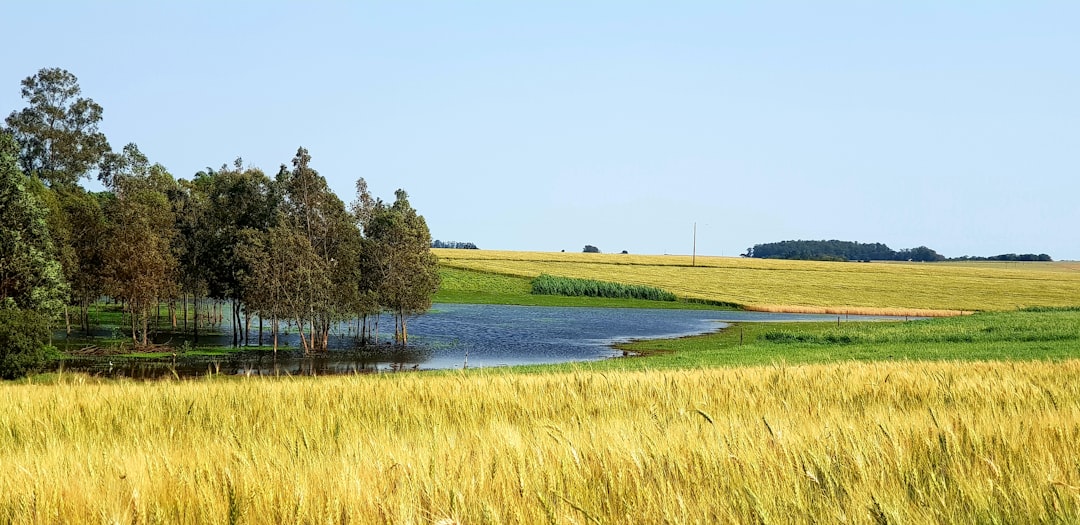The farmland investment market has garnered significant attention in recent years, emerging as a viable option for investors seeking diversification and stability. This sector is characterized by its unique attributes, including the tangible nature of land and its intrinsic value as a resource for food production. Investors are increasingly recognizing that farmland can serve as a hedge against inflation and economic downturns, making it an attractive addition to a diversified portfolio.
The market is influenced by various factors, including agricultural commodity prices, government policies, and global demand for food, all of which contribute to the dynamics of farmland valuation. In addition to its stability, the farmland investment market is also shaped by demographic trends and changing consumer preferences. As the global population continues to grow, the demand for food is expected to rise, placing additional pressure on agricultural production.
This scenario creates opportunities for investors who are willing to engage with the complexities of the agricultural sector. Understanding the nuances of this market is essential for potential investors, as it allows them to make informed decisions that align with their financial goals and risk tolerance.
Key Takeaways
- Farmland investment market is a stable and lucrative option for investors looking for long-term returns.
- Historical performance of farmland investments has shown consistent growth and resilience, even during economic downturns.
- Factors influencing farmland value include location, soil quality, water availability, and market demand for agricultural products.
- Risks associated with farmland investments include weather-related risks, market fluctuations, and regulatory changes.
- Benefits of investing in farmland include portfolio diversification, inflation hedging, and potential for regular income from leasing or farming operations.
Historical Performance of Farmland Investments
Historically, farmland has demonstrated a robust performance compared to other asset classes. Over the past few decades, farmland values have shown a consistent upward trajectory, driven by factors such as increasing agricultural productivity and rising global food demand.
This historical performance underscores the potential of farmland as a reliable investment vehicle. Moreover, the resilience of farmland investments during economic downturns further solidifies their appeal. Unlike many financial assets that can be subject to volatility and market fluctuations, farmland tends to maintain its value due to its essential role in food production.
During periods of economic uncertainty, investors often turn to tangible assets like farmland as a safe haven, which can help stabilize their portfolios. This historical context provides a compelling argument for considering farmland as a long-term investment strategy.
Factors Influencing Farmland Value

Several key factors influence the value of farmland, making it essential for investors to understand these dynamics before entering the market. One of the primary determinants is location; farmland situated in regions with favorable climate conditions, access to water resources, and proximity to markets tends to command higher prices. Additionally, soil quality plays a crucial role in determining agricultural productivity, which directly impacts land value.
Investors must conduct thorough due diligence to assess these factors when evaluating potential farmland investments. Economic conditions also significantly affect farmland values. Fluctuations in commodity prices can lead to changes in rental rates and land values, as higher prices for crops typically result in increased demand for farmland.
Furthermore, government policies related to agriculture, such as subsidies and land use regulations, can influence market dynamics. Investors should stay informed about these external factors and their potential impact on farmland values to make strategic investment decisions.
Risks Associated with Farmland Investments
| Risk Category | Description |
|---|---|
| Market Risk | The risk of fluctuating land prices due to changes in demand, supply, and market conditions. |
| Operational Risk | The risk of crop failure, natural disasters, or operational mismanagement affecting the profitability of the farmland. |
| Regulatory Risk | The risk of changes in government policies, regulations, or land use restrictions impacting the investment’s value. |
| Environmental Risk | The risk of environmental degradation, pollution, or climate change affecting the productivity and sustainability of the farmland. |
| Financial Risk | The risk of financial leverage, interest rate fluctuations, or liquidity constraints impacting the financial performance of the investment. |
While farmland investments offer numerous benefits, they are not without risks.
Droughts, floods, and other natural disasters can lead to significant financial losses for farmers and landowners alike.
Investors must consider these risks when assessing potential farmland investments and may need to implement strategies to mitigate them. Market risk is another critical factor that investors should be aware of. Fluctuations in commodity prices can impact rental income and land values, leading to potential losses.
Additionally, changes in consumer preferences or shifts in agricultural practices can alter demand for certain crops, affecting profitability. Investors should conduct thorough market research and consider diversifying their investments across different types of farmland or agricultural products to reduce exposure to these risks.
Benefits of Investing in Farmland
Investing in farmland offers several compelling benefits that attract both individual and institutional investors. One of the most significant advantages is the potential for steady income generation through rental agreements with farmers. Farmland can provide a reliable source of cash flow, particularly in regions with strong agricultural markets.
This income can be particularly appealing for investors seeking passive income streams or those looking to supplement their retirement savings. Additionally, farmland investments often provide a hedge against inflation. As the cost of living rises, so too does the price of agricultural products, which can lead to increased land values over time.
This characteristic makes farmland an attractive option for investors concerned about the eroding purchasing power of traditional currencies. Furthermore, owning tangible assets like farmland can instill a sense of security and stability that is often lacking in more volatile financial markets.
Farmland Investment Options

Investors interested in farmland have several options available to them, each with its own set of advantages and considerations. Direct ownership is one of the most straightforward approaches, allowing investors to purchase parcels of land outright and manage them directly or lease them to farmers. This method provides complete control over the investment but also requires a significant commitment of time and resources.
Another option is investing through real estate investment trusts (REITs) that focus on agricultural properties. These REITs allow investors to gain exposure to farmland without the need for direct ownership or management responsibilities. By pooling resources with other investors, individuals can benefit from diversification and professional management while still participating in the agricultural sector.
Additionally, crowdfunding platforms have emerged as a modern way for investors to participate in farmland investments with lower capital requirements.
Farmland Investment Strategies
Developing a sound investment strategy is crucial for success in the farmland market. One effective approach is to focus on long-term investments that prioritize capital appreciation over short-term gains. By holding onto farmland for extended periods, investors can benefit from rising land values driven by increasing demand for food production and limited supply of arable land.
Another strategy involves diversifying investments across different types of crops or geographic regions. This diversification can help mitigate risks associated with specific crops or local market fluctuations. For instance, investing in both row crops and specialty crops can provide a buffer against price volatility in any one sector.
Additionally, considering sustainable farming practices can enhance long-term profitability while appealing to environmentally conscious consumers.
When comparing farmland investments to other asset classes, several distinct advantages emerge. Unlike stocks or bonds that are subject to market volatility and economic cycles, farmland tends to exhibit more stable performance over time. The intrinsic value of land as a finite resource contributes to its resilience during economic downturns.
Furthermore, farmland investments often provide unique tax advantages compared to traditional investments. For instance, certain tax incentives may be available for agricultural landowners who engage in sustainable practices or conservation efforts. This aspect makes farmland an appealing option for investors seeking not only financial returns but also potential tax benefits.
Tax Considerations for Farmland Investments
Tax considerations play a significant role in the decision-making process for farmland investors. Understanding the tax implications associated with owning and operating agricultural land is essential for maximizing returns. In many jurisdictions, property taxes on farmland may be lower than those on residential or commercial properties due to agricultural use assessments.
Additionally, capital gains tax treatment can vary based on how long an investor holds the property and whether it qualifies for certain exemptions or deductions related to agricultural use. Investors should consult with tax professionals who specialize in agricultural investments to navigate these complexities effectively and ensure compliance with local regulations.
Sustainable and Ethical Considerations in Farmland Investments
As awareness of environmental issues grows, sustainable and ethical considerations have become increasingly important in the farmland investment landscape. Investors are now more inclined to seek out opportunities that align with their values regarding environmental stewardship and social responsibility. Sustainable farming practices not only contribute positively to the environment but can also enhance long-term profitability by improving soil health and reducing reliance on chemical inputs.
Moreover, ethical considerations extend beyond environmental impact; they also encompass social aspects such as fair labor practices and community engagement. Investors who prioritize these factors may find themselves better positioned in an evolving market where consumers are increasingly demanding transparency and sustainability from food producers.
Expert Insights and Recommendations for Farmland Investors
Experts in the field of agriculture and investment offer valuable insights for those considering entering the farmland market. They emphasize the importance of conducting thorough research before making any investment decisions. Understanding local market conditions, soil quality, water availability, and crop viability are critical components of successful farmland investing.
Additionally, experts recommend building relationships with local farmers and agricultural professionals who can provide firsthand knowledge about regional trends and challenges. Networking within the agricultural community can lead to valuable partnerships and opportunities that may not be readily apparent through traditional investment channels. In conclusion, while investing in farmland presents unique challenges and risks, it also offers substantial rewards for those willing to navigate its complexities thoughtfully.
By understanding the market dynamics, historical performance, and various investment strategies available, investors can position themselves for success in this increasingly popular asset class.
Investing in farmland has been a topic of interest for many looking to diversify their portfolios with tangible assets. Farmland is often considered a safe investment due to its potential for stable returns and its role as a hedge against inflation. For those interested in exploring this topic further, an insightful article on the subject can be found on How Wealth Grows. This article delves into the various factors that make farmland a compelling investment choice, including its historical performance and future prospects. To read more about the safety and benefits of investing in farmland, you can visit the article by clicking on this link: How Wealth Grows.
WATCH THIS! 🫣Why Wall Street Is Buying Up America’s Farmland (And Why It Should Terrify You)
FAQs
What is farmland investment?
Farmland investment refers to the purchase of agricultural land for the purpose of generating income or capital appreciation. It can involve leasing the land to farmers or operating the land for agricultural production.
Is farmland a safe investment?
Farmland is generally considered a safe investment due to its ability to generate steady income and its potential for long-term appreciation. Historically, farmland has shown resilience to economic downturns and has provided a hedge against inflation.
What are the factors that make farmland a safe investment?
Farmland is considered a safe investment due to factors such as its limited supply, essential role in food production, and the growing global demand for agricultural products. Additionally, farmland tends to have a low correlation with other asset classes, providing diversification benefits to an investment portfolio.
What are the potential risks associated with farmland investment?
Some potential risks associated with farmland investment include fluctuations in commodity prices, environmental factors such as droughts or natural disasters, and regulatory changes that may impact agricultural practices. Additionally, there may be challenges in finding suitable tenants or managing the land effectively.
How can one invest in farmland?
Investing in farmland can be done through direct ownership of agricultural land, investing in farmland-focused real estate investment trusts (REITs), or through farmland investment funds. Each approach has its own considerations in terms of capital requirements, management responsibilities, and potential returns.
What are the potential returns from farmland investment?
The potential returns from farmland investment can come from rental income, crop production, and land appreciation. The actual returns can vary based on factors such as location, soil quality, crop prices, and management practices. It’s important to conduct thorough research and due diligence before making a farmland investment.
